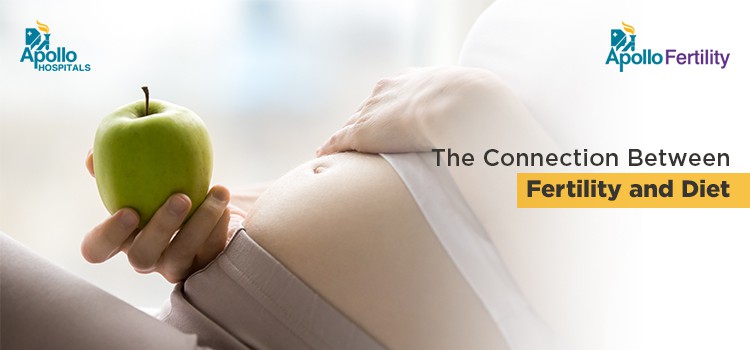A healthy pregnancy has always been linked to a good diet. But, did you know that some of the foods that we eat can also affect fertility? According to past studies by researchers from the Harvard T.H. Chan School of Public Health and Harvard Medical School, the consumption of trans fats and other unhealthy foods like potatoes, sweetened beverages, and processed meats, had negative effects on fertility. This was found in the case of women who were trying to become pregnant naturally, without any assisted reproductive technologies.
According to another 2018 study, consuming more fast food and fewer fruits and vegetables can make it difficult for women to get pregnant. This was proven by a study conducted by the Harvard School of Public Health, which found that over 19,000 women who consumed more trans fats, carbs, and animal proteins suffered from a higher incidence of ovulatory disorder than those who consumed less of such foods.
Looking at these studies, it is clear that there is a strong relationship between food and a person’s fertility.
The Fertility Diet
The fertility diet was introduced in the year 1991 which was based on a study that involved over 18,000 women. In 2007, the findings were published in the form of a book “The Fertility Diet: Groundbreaking Research Reveals Natural Ways to Boost Ovulation & Improve Your Chances of Getting Pregnant” by two co-authors of the study.
According to the fertility diet, a woman’s egg production improves if she consumes a rich diet that consists of healthy fats, plant-based proteins, and whole grains. This could also help a woman to regulate blood glucose and insulin levels, thus assisting in regular ovulation and then pregnancy. On the contrary, the study also states that saturated fats, sugary foods, carbs, and red meat can have the opposite effect.
Based on the study, here is a list of some of the best foods for increasing the chances of fertility.
Foods to increase fertility
1. Fruits and Vegetables
Load your meals with high doses of fruits and vegetables if you want to improve the quality of your eggs. Raw fruits and eggs consist of a rich supply of glutathione, an ingredient important for egg quality.
2. Healthy Fats
These fats are mostly present in nuts, olive oil, avocados, and grapeseed oil. The benefit of consuming healthy fats is that it reduces inflammation, thus promoting ovulation and fertility.
3. Good Carbs
These include foods like fruits, vegetables, and whole grains that contain fibre. These foods have a more gradual effect on insulin and blood sugar. Women with PCOS should cut back on gluten as it creates an inflammatory response in the body.
4. Plant proteins
When choosing a diet for increasing fertility, one should opt for plant protein derived from foods like nuts, beans, and tofu. Consuming these proteins decrease the risks of ovulatory disorders by 5%.
5. Full-fat Dairy Products
Consumption of high-fat dairy products decreases the risks of ovulatory infertility in women. Homemade yoghurt is one of the best foods for boosting fertility. It’s also helpful to boost semen quality.
6. Whole foods
This food group is rich in whole grains and vegetables, protecting women from any ovulatory dysfunctions. A rich Mediterranean diet is the key to increased fertility.
Foods to Avoid
Now that we know about the types of foods that one can include in their diet, here is a list of foods to avoid when trying to conceive.
- Processed soy
- Sugary drinks or foods
- Caffeinated drinks
- Processed foods
- Low-fat dairy products
- Red meat
Fertility is a growing issue owing to the lifestyles and food habits that we follow today. However, it’s also not something that cannot be reversed. For best results, following a clean diet combined with everyday physical activity is recommended. So, why not start today and make your dream come true?
